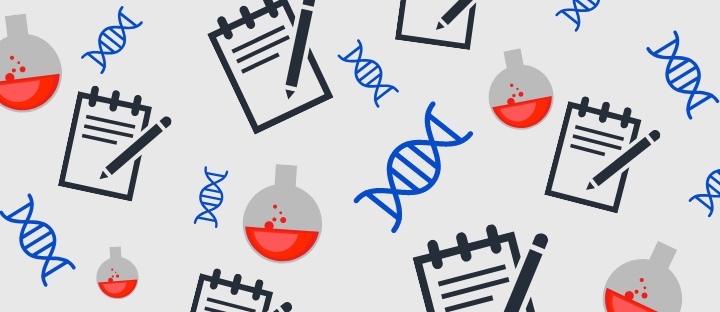#ScienceSaturday posts share relevant and exciting scientific news with the KAND community. This project is a collaboration between KIF1A.ORG’s Research Engagement Team Leader Alejandro Doval, President Kathryn Atchley, Science Communication Associate Aileen Lam and Chief Science Officer Dr. Dominique Lessard. Send news suggestions to our team at impact@kif1a.org.
News from KIF1A.ORG
KIF1A.ORG Announces New Partnership with BioLoomics!

We are thrilled to introduce you to BioLoomics, a new partner in our urgent mission to find treatments for KIF1A-Associated Neurological Disorder (KAND)!
To learn more about BioLoomics and our partnership, check out the announcement below and visit https://bioloomics.com/. Make sure you’re registered to attend the virtual 2021 KAND Family & Scientific Engagement Conference on July 9-10, where BioLoomics CEO & Founder Dr. Douglas Chapnick will present on their KIF1A program and take questions from the audience.
Recent KIF1A-Related Research
The Novel KIF1A Missense Variant (R169T) Strongly Reduces Microtubule Stimulated ATPase Activity and Is Associated With NESCAV Syndrome
Recently, a novel KIF1A variant has been identified with clinical features that match those of NESCAV Syndrome, a neurodevelopmental disorder that encompasses neurodegeneration, spasticity, and intellectual disability. From whole exome sequencing, this new de novo variant (R169T) was found in the KIF1A gene of a 10-year-old boy, who had experienced developmental delay and low muscle tone at the age of 10 months. With further analysis of this variant, researchers determined that it does not alter protein stability, meaning the KIF1A protein shape and structural supports are still intact. However, the R169T variant does impair KIF1A’s ATPase activity most likely due to defects in microtubule binding. In other words, this variant is somehow altering the KIF1A “engine” that it relies on to transport cellular cargos along microtubule roadways. From this, researchers, clinicians, patients and their families are able to gain more knowledge of different variants and their associated clinical features that are attributed to KAND.
With KAND being a rare disease that many have limited knowledge of, new insights are gained progressively with ongoing research on this neurodevelopmental disorder. This article highlights the importance of having ongoing research for rare diseases like KAND in order to gain a more comprehensive understanding that will one day lead to treatment. To read more about the discovery of this novel KIF1A variant, click on the link below. Want a refresher on some KIF1A basics? Check out our “What Is KIF1A?” video!
Rare Disease News
Common mechanism found for diverse brain disorders
There are many different types of neurodevelopmental disorders (ND) that people experience all around the world, which can make it difficult to find care and treatment that is specific to each one. However, a recent research revelation identified a common mechanism that underlies a spectrum of epilepsy and NDs that occur as a result of variations in a vital transporter protein in the brain. Researchers at Vanderbilt University Medical Center (VUMC) found that boosting transporter function could be useful in treating a wide spectrum of brain disorders, such as epilepsy, autism, and others, that are associated with similar genetic variations. This transporter that they found to be shared by a range of NDs is the GABA transporter 1 (GAT-1) encoded by a gene called SLC6A1. GAT-1 functions to remove GABA, which is a major inhibitory neurotransmitter. As a reminder, a neurotransmitter is a molecule released from nerve cells for the purposes of neuron communication. Since GABA has inhibitory effects, this molecule helps to decrease this communication, which aids in regulating nerve signals throughout the brain that play an important role in normal brain development. This inhibition signaled by GABA must also be regulated, thus the role of GAT-1 is essential for healthy brain function.
Knowing that SLC6A1 variants are associated with epilepsy, autism, and impaired cognition, these researchers at VUMC identified 22 different variants of SLC6A1 on GAT-1 function in nerve cells from patients with NDs, epilepsy, and autism. They found that these disease-causing variants led to misfoldings of the GAT-1 protein, which led to lower levels of normal expression of the protein and a decreased reuptake of GABA by nerve cells. From these discoveries, these researchers suggest that a potential therapy could lie in finding a way to restore GAT-1 function or increase expression of the normal GAT-1 protein. By identifying a common mechanism that is shared by multiple NDs, this research can beneficially impact a range of patients living different types of NDs. Want to learn more about this research and GABA? Check out the article and video below!
Online therapy aids the isolated, immunosuppressed in pandemic
This past year, the COVID-19 pandemic has been taxing for many, especially for those living with rare autoimmune diseases who are at higher risk for contracting the virus. Due to these circumstances, they experienced isolation measures on a more extreme level and as result were victim to higher rates of mental health issues like anxiety and depression. In a recent study published in The Lancet Rheumatology, mental health progress was analyzed for over 150 people with scleroderma, a rare autoimmune disease that causes patients’ skin and connective tissues to tighten. Randomized patients were appointed to one of two groups: to receive video support intervention or to be put on a waitlist. The findings in the end show that mental health outcomes were improved after patients finished the intervention program, suggesting that online therapies have a valuable potential to mitigate mental health issues experienced by many during this isolation time. This study is important, as mental health often comes secondary to other health problems that patients may experience. With researchers reporting on a virtual and cost-effective way to help improve feelings of anxiety and depression, those experiencing mental health struggles, especially in the rare disease community, may have improved access to address these issues. By providing patients new ways to stay connected and manage their stress, this online therapy promises potential therapy that lies outside the realm of medications and highlights the importance of addressing mental health. To read more about this virtual intervention, check out the article below!

